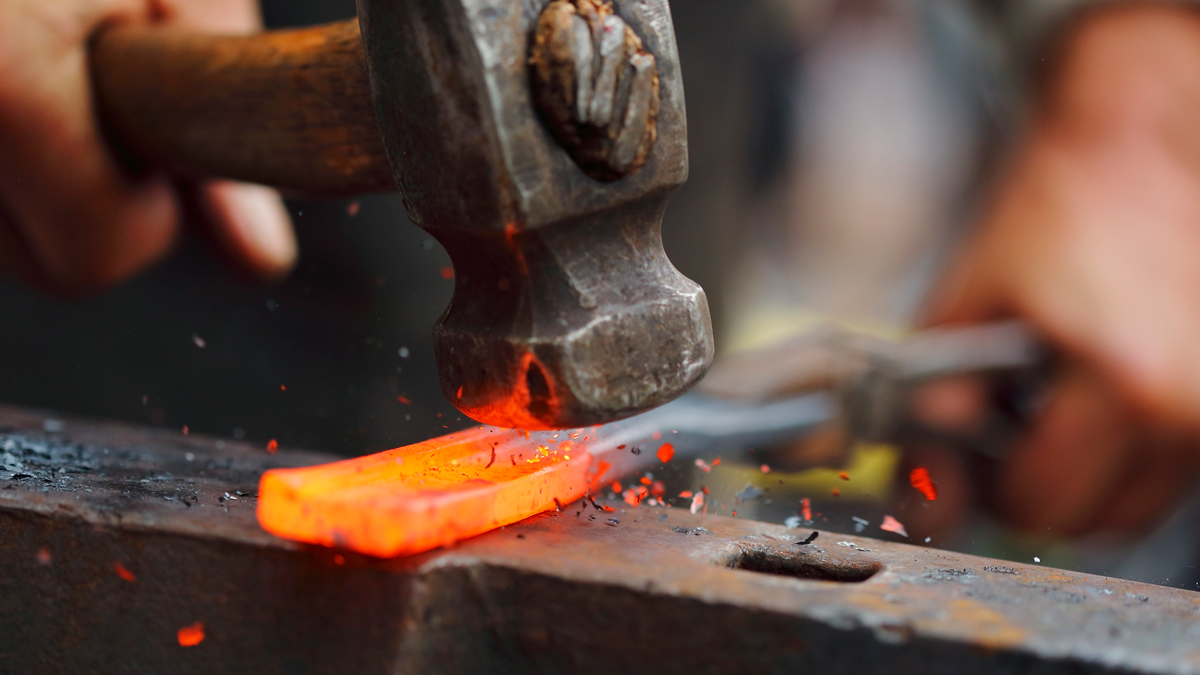Freehill finds Rio Tinto, BHP-level grade iron ore in Chile and shares spike 40pc

Strike! Picture: Getty Images
Minnow Freehill Mining (ASX:FHS) has hit high grades of iron ore close to the surface at a project in Chile that would rival what the big boys are mining.
Freehill reported an intersection of 18m of near-pure magnetite of over 63 per cent iron within 50m of surface in its first ever drilling program at the Yerbas Buenas project.
This sent shares up 40 per cent on Tuesday morning to an intra-day high of 2.1c on much higher trading volume than is the norm for Freehill.
Over 2 million shares had changed hands by 11.30am AEDT.
Magnetite iron ore has a higher cost of production compared with direct-shipping hematite iron ores (DSO) — produced by iron ore majors like BHP and Rio Tinto — because of the downstream processing involved.
DSO — or direct shipping ore — refers to minerals that require only simple crushing before they are exported, which keeps costs low.
However, the upgraded magnetite iron ore product can grade between 65 per cent to 70 per cent iron, compared with 62 per cent for a premium DSO.
Chile’s largest iron ore producer Compania Minera del Pacifico drilled two holes in 2011 and walked away from the project — but now regrets the decision.
“Now the feedback we have from all levels of management is they wish they’d never walked away from it,” CEO Peter Hinner told Stockhead.
“We have now demonstrated that the magnetic targets identified by geophysics and now drilling contain a high-quality magnetite suitable for the large, local pellet feed plant owned by Chile’s largest iron ore producer Compania Minera del Pacifico.
“Yerbas Buenas is shaping up as a significant Chilean magnetite project with established off-take agreements and third-party processing operations available to us only 35 kilometres from site.”
The stand-out hit was part of a 4300m, six-hole drilling program from 150m to 250m deep.
- Subscribe to our daily newsletter
- Bookmark this link for small cap news
- Join our small cap Facebook group
- Follow us on Facebook or Twitter
Freehill drilled 120m of high-grade magnetite averaging 30 per cent iron.
Detailed test work carried has shown that sort of iron content would provide a 38 per cent mass recovery using the standard “Davis Tube Recovery” method commonly used for magnetite assessment.
This means that for every 100 tonnes of material that could be mined and processed, about 35 tonnes of magnetite could be recovered to a high-grade fine product.
Mr Hinner says Freehill has proven it can “easily make a 62 per cent” grade product, which is all its needs to produce to supply Compania Minera del Pacifico’s nearby plant.
Freehill has been supplying the plant for two years. Compania Minera del Pacifico uses Freehill’s concentrate to produce a pellet feed that it ships to China for use in blast furnaces.
Freehill is aiming to release a resource estimate for the Yerbas Buenas project this month.
UNLOCK INSIGHTS
Discover the untold stories of emerging ASX stocks.
Daily news and expert analysis, it's free to subscribe.
By proceeding, you confirm you understand that we handle personal information in accordance with our Privacy Policy.








